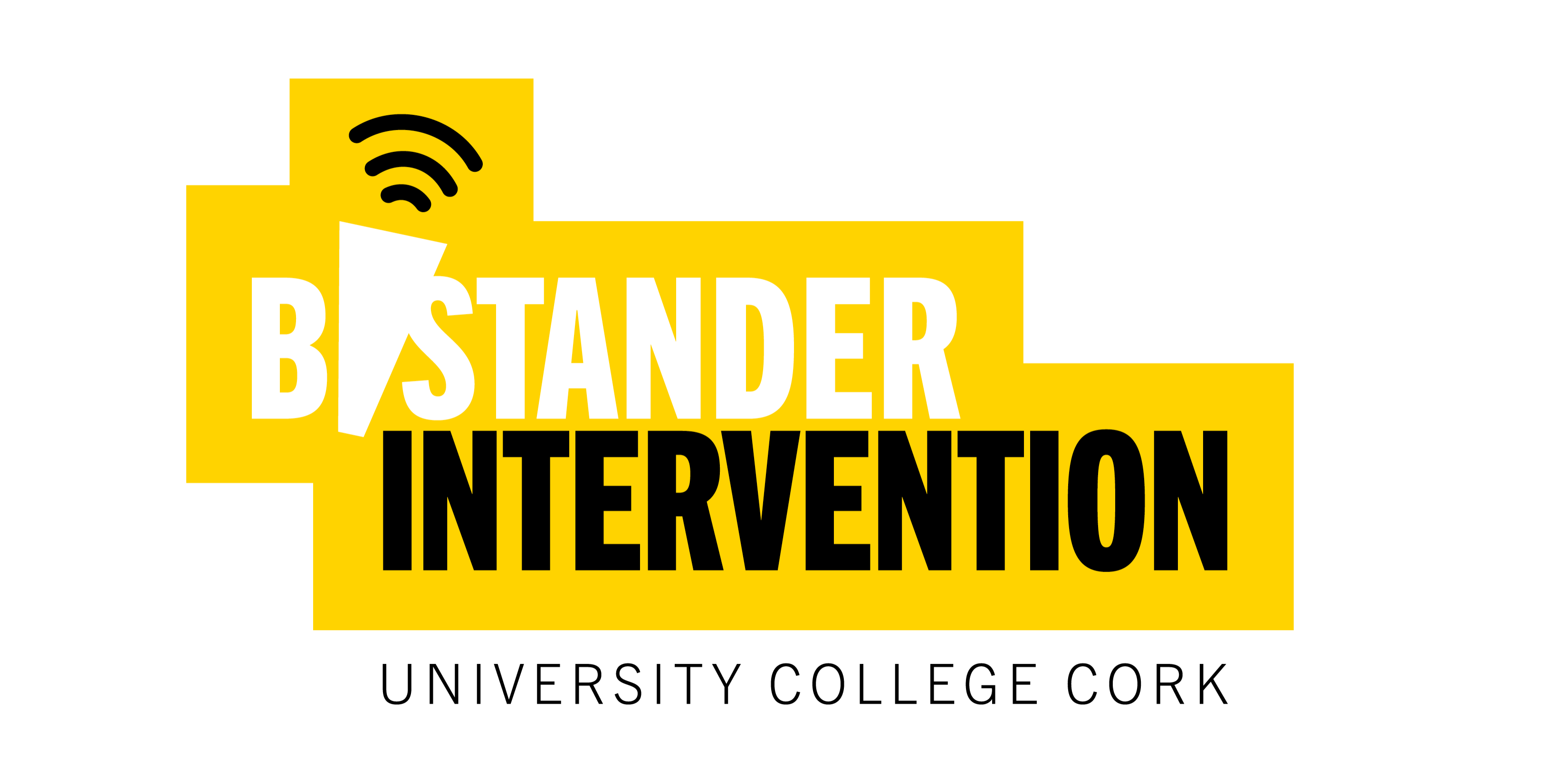About the programme

The Bystander Intervention programme at UCC forms part of a strategic response to the issues of sexual misconduct and violence among student populations. The blended-learning approach of the Bystander Intervention programme seeks to not only enhance knowledge and understanding of these issues, but also to lead to attitude and behavioural change across the university.
The programme is led by Professor Louise Crowley of the School of Law, UCC.
On this page:
Programme outline
The aim of the Bystander Intervention Programme is to highlight the danger of normalising and accepting abusive behaviour and through education, inform and empower programme participants to better understand their capacity to intervene as pro-social bystanders.
Available to all students and staff at UCC, the programme consists of 3.5 to 4 hours online training with 5 self-directed modules and is complemented by a live, facilitated 1-hour workshop, which is able to be conducted both online and on campus.
The Bystander Intervention Programme provides students with an understanding of key issues related to consent and the boundaries surrounding sexual assault, rape and abusive relationships. It also enables them to develop key intervention skills which can be utilised in any setting.
Practicalities and learning outcomes
Eligibility
The Bystander Intervention programme is open to all UCC students and staff.
Mode of Delivery
The programme comprises 6 workshops. The first 5 workshops are self-directed and online, accessible through Canvas. The final, live facilitated workshop is usually delivered twice a week during the academic year, with one session delivered via MS Teams and the other delivered in-person on campus.
On completion of the online self-directed learning, participants indicate through an online form, their preferred day(s) to attend the facilitated workshop and will be notified of their workshop details, including a link to the workshop if via MS Teams or confirmation of the location if in-person. The final workshop involves approximately 12 students and provides a safe space to reflect on the learning experience with other participants in the programme.
Reflective Response
To secure university accreditation for completion for the Bystander Intervention Programme, students then complete a reflective response to demonstrate their learning experience.
Students are encouraged to deliver this reflective response in a mode that reflects their own skills. For example, students have chosen to reflect on their bystander training by way of 1,000 word essays, through poetry, art, etc. We encourage students to demonstrate their learning through whatever means best allows them to share the impact and importance of the programme to them.
Upon approval of their submission participants are awarded a university digital badge.
Learning Outcomes
On successful completion of this programme, students will be able to:
- Recognise that sexual and domestic violence are a serious problem in society and in student populations
- Learn bystander intervention theory
- Improve their knowledge and understanding about rape and sexual assault
- Accept that individuals can often be mistaken about others’ beliefs and values (social norms theory)
- Recognise the links between sexist attitudes, discriminatory practices and gender based violence
- Be familiar with intervention strategies
- Know where to go for help and / or support in cases of rape, assault or abuse
- Be confident to use intervention strategies in everyday life
- Improve their communication and leadership skills for the future
Digital Badge
All students who complete all workshops and the reflective response will be awarded a Digital Badge.
Registration for the programme is now open. Students can self-enrol through Canvas.
Background to the programme
The UCC Bystander Intervention programme is led by Professor Louise Crowley of the School of Law, and was piloted at UCC for two years with Law, Nursing and Midwifery and Applied Psychology students. Students in the workshops were empowered to consider and act on their shared responsibilities in building a culture of zero tolerance to prevent and combat sexual harassment and violence, both on and off campus.
The programme connects to UCC’s Strategic plan, premised upon the core values of the university, including equality, respect and integrity, and serves to empower and upskill students to safely intervene and demand a safer campus and society with zero tolerance for verbal and physical sexual harassment.
The UCC Bystander Intervention Programme is adapted from the Intervention Initiative (Fenton, Mott, McCartan, & Rumney, 2014) which was created at the University of the West of England, funded by Public Health England.
